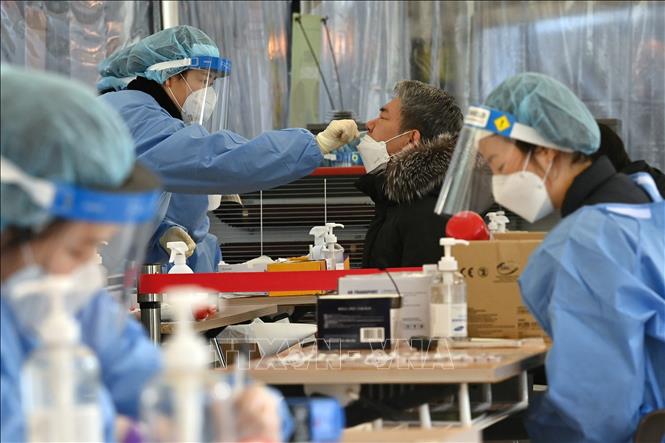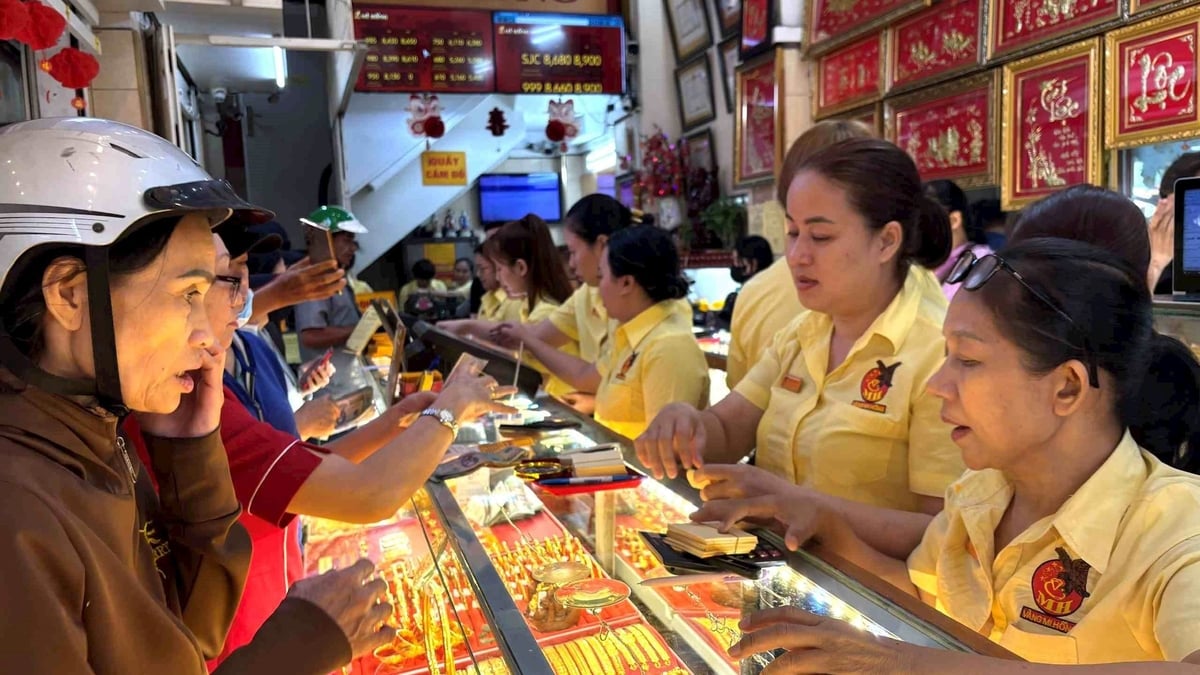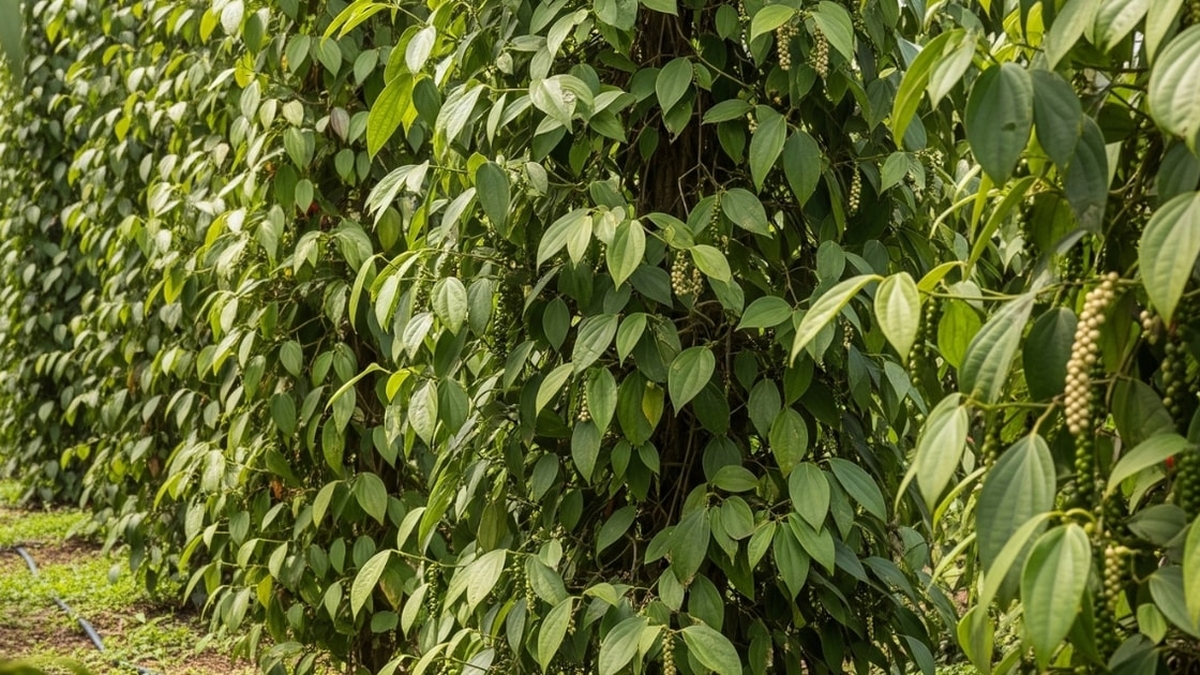Health authorities in South Korea have again advised people to wear masks as the average number of daily Covid-19 cases over the past week exceeded 45,000.
 |
| Medical staff take COVID-19 test samples from people in Seoul, South Korea. Photo: AFP/TTXVN |
“As the number of patients testing positive for COVID-19 is increasing, we ask people to voluntarily wear masks again in crowded places such as public facilities and public transportation,” Dr. Jee Young-mee of the Korea Disease Control and Prevention Agency (KDCA) said on August 2.
She also called on people who tested positive for SARS-CoV-2 to comply with the 5-day quarantine period.
According to the KDCA, the average daily number of COVID-19 cases from July 25 to July 31 reached 45,529.
A total of 57,220 cases were recorded on July 26. This is the first time in six months that the daily number of cases has exceeded 50,000.
The total number of patients who died from COVID-19 in the same period from July 25 to July 31 was 97, an increase of 72.5% compared to the previous week.
The rate of patients hospitalized with moderate to severe symptoms also increased by 19.7% compared to the previous week.
The KDCA expects the average daily number of infections to reach 60,000 by mid-August. Cases of other respiratory diseases such as influenza are also expected to increase.
South Korea lifted most mask regulations in enclosed spaces in March, except in health care facilities such as hospitals, pharmacies and nursing homes.
Although South Koreans are no longer required to wear masks, Dr. Jee said they are the most basic means of preventing the spread of infectious diseases.
Next week, the country will decide whether to downgrade its COVID-19 classification. COVID-19 is currently a level 2 disease, meaning that patients must report to authorities within 24 hours of being diagnosed.
If downgraded to the lowest level 4, patients do not need to report if they have COVID-19. And
Mask wearing in healthcare facilities is also no longer mandatory.
Dr. Jee assessed that the COVID-19 pandemic no longer posed a major threat to society. But she also noted that the disease was not yet completely endemic.
According to experts, the recent resurgence of COVID-19 is partly due to the Omicron XBB 1.5 variant, which is known to spread faster and is the dominant pathogenic variant in South Korea. In addition, increased travel and social interactions during the summer holidays have also contributed to the increase in new cases.
Meanwhile, due to the intense heat, people tend to stay longer in air-conditioned indoor environments - which have poor ventilation conditions - and this is likely to accelerate the spread of the SARS-CoV-2 virus.
According to VNA
Source link


























![[Photo] National Assembly Chairman attends the seminar "Building and operating an international financial center and recommendations for Vietnam"](https://vphoto.vietnam.vn/thumb/1200x675/vietnam/resource/IMAGE/2025/7/28/76393436936e457db31ec84433289f72)










































































Comment (0)